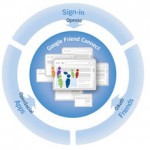 Los Angeles — Search engine goliath Google Inc. on Tuesday said it is experimenting with a new software called PowerMeter to help families keep track of their home energy usage and informs residents which devices in their homes are electricity hogs and which are being frugal with energy and thereby reduce their consumption and the global warming emissions that come from electricity they are using.
Los Angeles — Search engine goliath Google Inc. on Tuesday said it is experimenting with a new software called PowerMeter to help families keep track of their home energy usage and informs residents which devices in their homes are electricity hogs and which are being frugal with energy and thereby reduce their consumption and the global warming emissions that come from electricity they are using.
The move is part of Google’s effort to empower people with a grip on how much energy they consume at home in order to encourage them change their habits and ease the pressure that electricity demands put on the planet and other measures that will reduce greenhouse gas emissions.
The Google PowerMeter, a tool designed to show consumers their home energy information in nearly real time, right on their computer. The PowerMeter software will comprehensively examine the consumption information captured by “smart meters,” and translate it into easy-to-understand information to help people see where they could enforce cut back. Ed Lu, a member of Google’s engineering team, said in a blog post that Google employees are testing the technology now as the company works with manufacturers and utility companies to create pilot programs for consumers.
Consumers would be able to monitor the PowerMeter through their computers and other web-enabled devices by utilizing a special widget embedded on their personalised iGoogle homepage.
Lu said that the company is also suggesting and investing in a digital “smart grid,” which includes open protocols and standards and is intended to deliver usage information to consumers and give them control over who can see their data.
“In a world where everyone had a detailed understanding of their home energy use, we could find all sorts of ways to save energy and lower electricity bills,” Lu wrote. “It may not seem like much, but if half of America’s households reduce their energy demand by 10%, thus it would be the equivalent of taking eight million cars off the road.”
The announcement comes as the California Internet titan has already made investments in several fledgling solar, wind and geothermal companies, as well as two “smart grid” electricity network to better track and manage power consumption.
Google’s investments in smart grid companies include Germantown, Maryland-based Current Group and Redwood City, California-based Silver Spring Networks.
Smart grid offers a more effective, less costly method of moving electricity along long-distance transmission lines to local power lines and end-users in homes and businesses.
The PowerMeter software being examined by Google employees receives information from “smart” electric meters and devices such as appliances and then sends to users’ computers detailed reports about how the power is being divvied up.
One Google engineer mentioned that he saved 3,000 dollars last year after feedback provided by PowerMeter prompted energy-trimming changes to incandescent light bulbs, a swimming pool filter and two old refrigerators.
A Google program manager mentioned that PowerMeter informed her of a stuck dial on a toaster oven that could have started a fire in the kitchen of her apartment.
“Imagine how hard it would be to stick to a budget in a store with no prices,” Google engineering team member Lu wrote in a posting at the company’s website.
At present, there are around 40 million smart meters in use around the world, although energy companies plan to install some 100 million more in the next few years, according to Google.
Lu said that Google’s mission was to organise the world’s information and make it universally accessible and useful.
“If Google plays their cards smartly, this service can give them a big win with consumers,” said Dan Olds, an analyst at Gabriel Consulting Group Inc. “People are concerened about controlling their energy consumption like never before, and they have more options for reducing their energy usage, like higher-efficiency appliances, heating, and lighting. The missing link is that few consumers know how much power they use on a particular day at a given time. This Google service fills in that hole and gives consumers the data they need to evaluate their usage, make changes, and track their improvement.”
Lu said that the company has been promoting to force electricity suppliers to provide consumers with more detailed information about their home electricity use. In a letter written Monday to the California Public Utilities Commission, Google called for policies that result in people getting real-time data regarding their electricity use.
“This would enable consumers to have greater understanding of, and control over, their electricity usage, and will reduce energy demand and the need to build new generation,” Google maintains in the letter.
The energy conservation moves are the latest in a series of announcements by Google this month.


